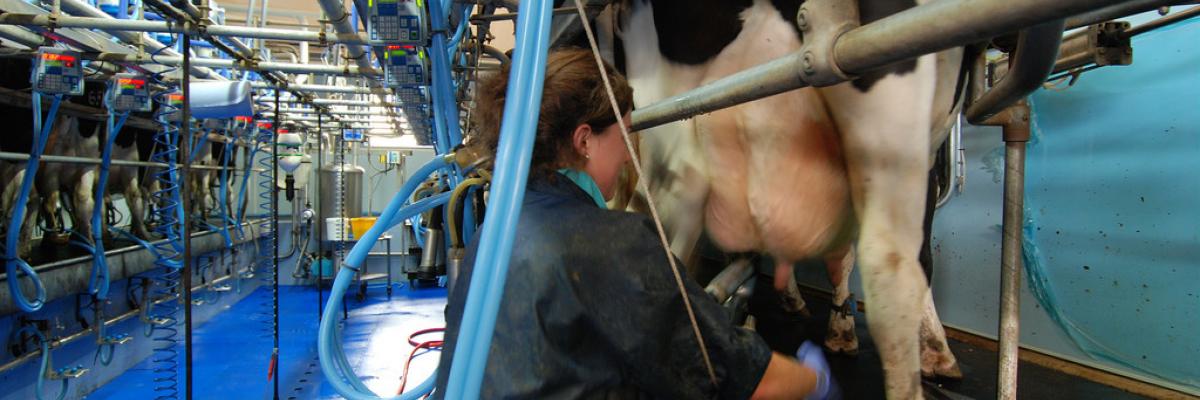

Improving the targeting of mastitis treatments
Innovative Farmers field lab
Innovative Farmers field lab
View the website
Resource explained:
Whilst many farmers use non-antibiotic dry cow regimes successfully in uninfected cows, there has been little progress in reducing antibiotic use for clinical mastitis without compromising the outcome. It is not uncommon for farmers to carry out treatment without having identified the bacteria or knowing the cause of infection. This webpage hosts information on the Innovative Farmers field lab that is aiming to demonstrate that given appropriate training, farmers can determine the causative agent of mild or moderate clinical mastitis (Grades 1 or 2), using the Vetorapid™ system, and deliver selective treatment based on the results. Under ‘Achievements’, you can view trial results and key issues that have been raised.
Findings & recommendations:
- Not all mastitis cases benefit from antibiotic treatment.
- For dairy farmers, the problem has historically been that they cannot quickly identify the type of bacteria causing each mastitis case; sending samples away to a lab significantly delays treatment and potentially affects a cow's health and productivity.
- Providing farmers with a consistent procedure for typing bacteria rapidly (through on-farm tests which give results within 24 hours) could potentially reduce the use of antimicrobials in lactating cows by up to 50%.
- The use of a selective treatment approach will reduce the overall use of antibiotics on farms but will not reduce the odds of treatment failure, or increase the odds of recurrence or the average cell count for the remainder of the lactation.
- Latest findings report that:
- Farmers involved in the trial have found the technique has enabled them to make more confident and targeted decisions about their antibiotic requirements.
- Reducing unnecessary administering of antibiotics has financial and ethical benefits, further advances in diagnosis techniques would have significant benefits for the industry.
- There are plans to start a new field lab continuing the investigations (as the dataset collected was insufficient to make confident statistical conclusions), more information will be available as this develops.
